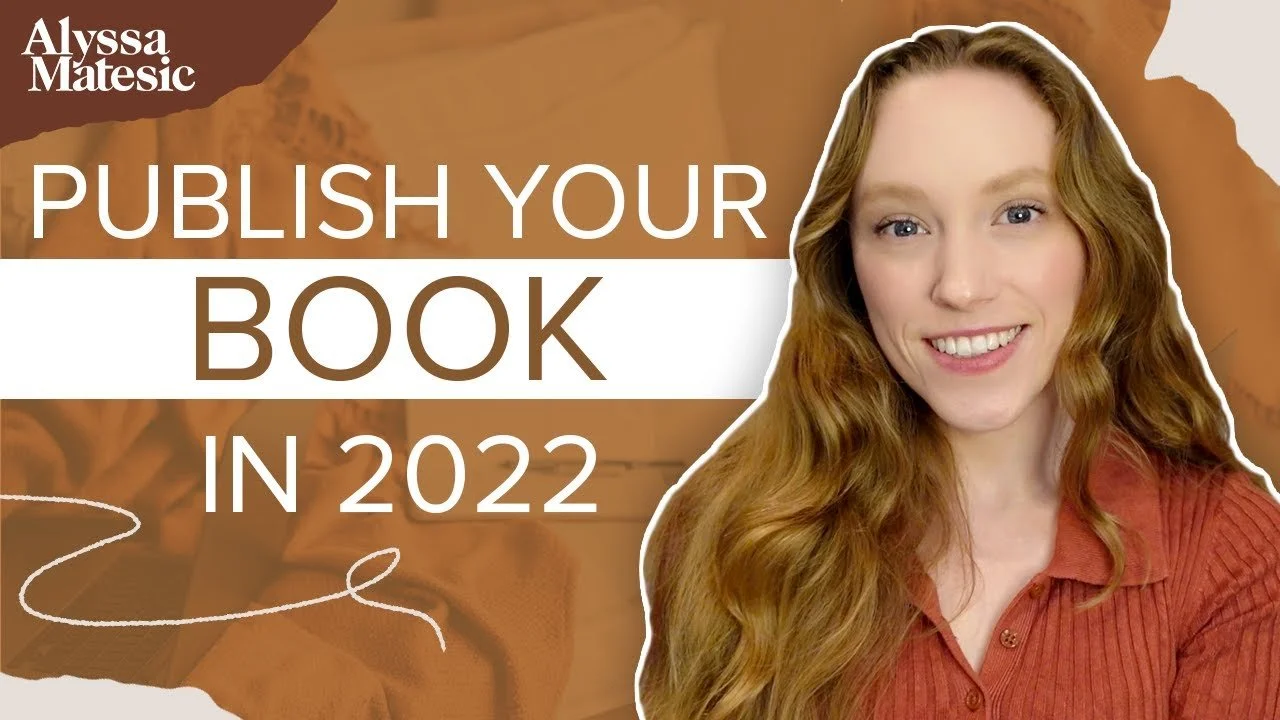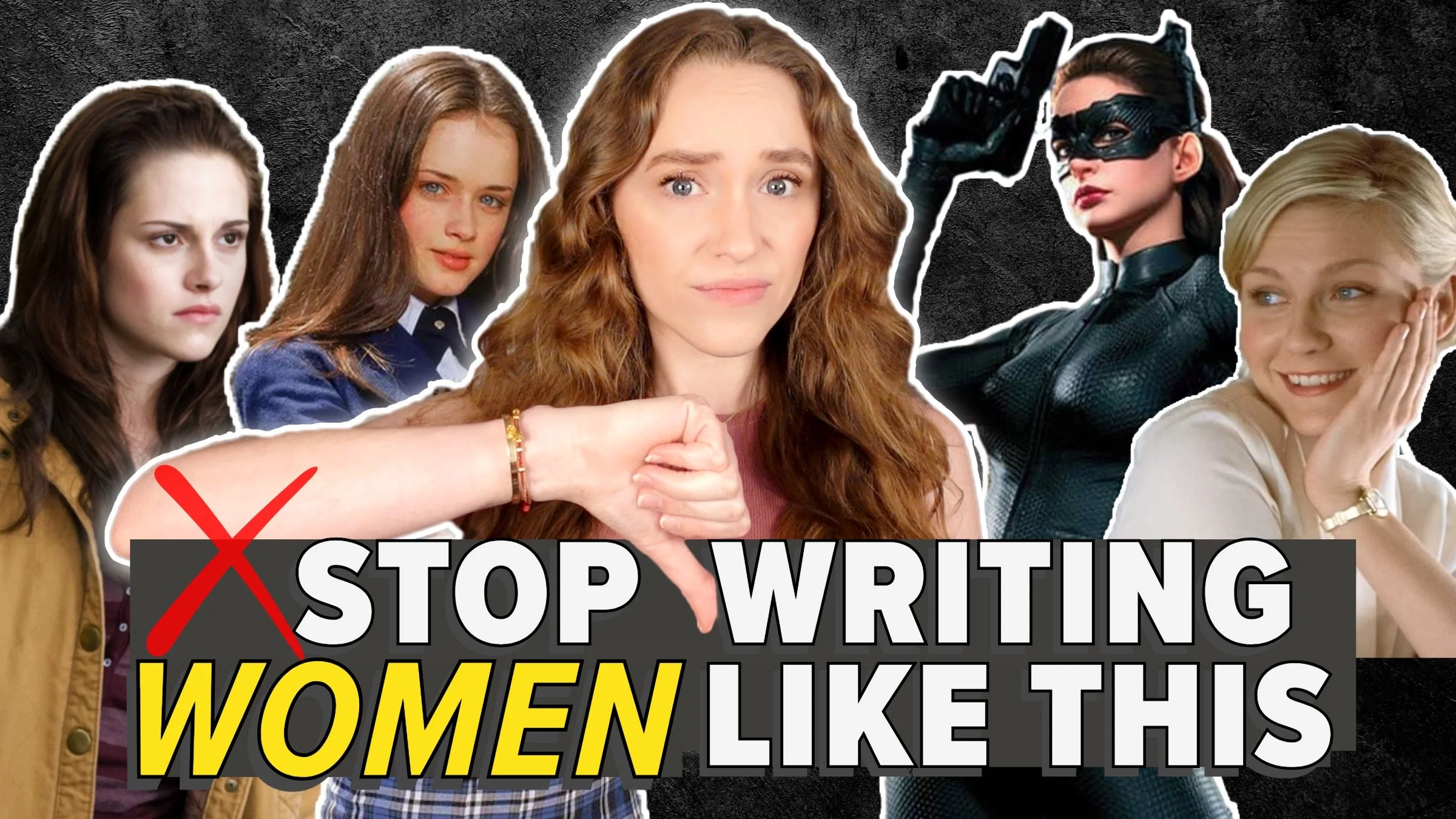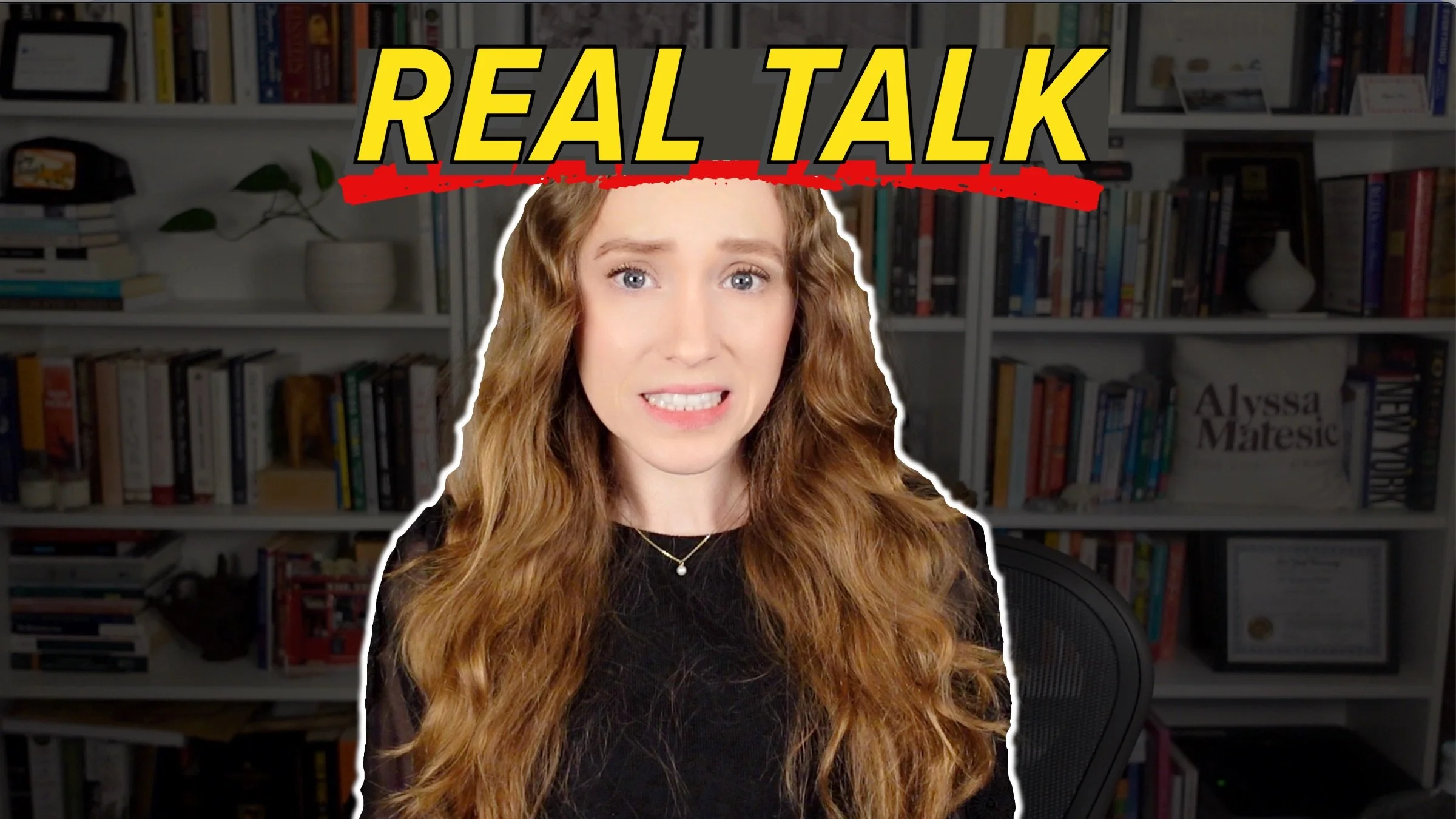How to Publish a Book
HIT PLAY OR READ THE POST BELOW:
Is this going to be the year you finally publish your book? Whether you're still deep in your drafts or putting the final touches on your manuscript, it's a good idea to think about how to publish your book.
The book publishing industry has changed a ton in the past decade and even in the past few years. It's at once an industry that is rooted in tradition and is old-fashioned, but also at the forefront of innovation and change. There are three main ways to publish your book.
In this article, I give a complete overview of your different options for publishing, including who it involves, how books are sold, and how you as the author would get paid. My goal as a professional book editor is to bring you as much information as I can so that you can make the most informed publishing decisions possible.
A quick disclaimer before I dive in: I do not believe that one publishing path is better than another. I firmly believe that it all comes down to your individual goals and priorities. In the past, I used to work at Random House and a literary agency, so I am more familiar with the traditional publishing path. But I do not, by any means, think it is the superior path or even the right path for every person.
1. Traditional Publishing
The first and most well-known publishing option is traditional publishing. This is when you, as the author, work closely with an established publishing house through the production process of your book. The publishing house staff will help you edit the manuscript, produce the physical copies, get the ebook ready to go, and format the pages properly. They should also help you market and distribute the physical book as well.
Basically, they will handle all the logistics of getting the book in the reader's hands. You are in charge of the writing and editing component of the book, getting it in the strongest shape possible so that it resonates with readers once it gets out.
If you intend to publish with the Big Five publishing houses, which are Penguin Random House, Simon & Schuster, Macmillan, Hachette, and HarperCollins, then you will first need to get a literary agent’s representation to pursue this publishing path. Within each of those publishing houses are dozens of imprints, which are essentially smaller publishing houses. Publishing with any of those Big Five companies is what comes to most people’s mind when talking about traditional publishing.
There are a handful of other, smaller publishing houses that operate similarly and you still need a literary agent to publish through them. There are also numerous independent presses out there, which may not require literary agent representation in order to submit manuscripts. But, to keep this overview simple, I'll keep it to my background knowledge on the Big Five.
Who does traditional publishing involve? You as the author, obviously, as well as your literary agent, the editor at the publishing house who makes the book deal, and the entire team at the publishing house. That team comprises the marketing department, the sales department, and the design department. All these people help make books into physical products.
How do books get sold? Through traditional publishing, the publishing house will be fully in charge of distributing the book. You don't have to worry about this part very much. The house will get copies into big retailers like Barnes & Noble as well as online on Amazon. They will even get your book in places you might not think of, like airport kiosk stands.
How do you get paid? With traditional publishing, you will not be paying anything upfront. When you get a literary agent, you will agree to giving them a 15% commission on your book deal. The book deal itself entails your advance, which is an advance payment against future royalties that you retain no matter how many copies your book sells, and any potential royalties, which is a percentage of each book sold. So while your agent will take 15% of everything listed above, you will receive the rest.
The reason I say potential royalties is because to earn royalties, you must first sell enough copies for the publisher to make back the money in the advance. Only after that will you earn royalties. It probably sounds bad that you don't earn royalties on every copy of your book from the beginning, but, depending on the advance, you can still make quite a bit of money.
2. Self-Publishing
In discussing how to publish a book, we have to talk about self-publishing. What this means is that you take control of the entire publishing process. No longer just the author, you are also in charge of editing, marketing, distributing, and designing the cover.
Who does it involve? Primarily, you! You are in charge of this entire process, but it can also involve any people you hire to help you. Whether that be a developmental editor, a copy editor, a cover designer, or a marketing or publicity person, you will be managing all of these people if you choose to do so.
How do books get sold? Through self-publishing, this depends on the platform you use to self-publish, with Amazon being the most popular example. Some platforms only distribute electronic versions. There are also self-publishing platforms that allow you to print on demand, which means in addition to the digital copy, readers can request a print copy and one will be printed and sent for them. This is a great option as you won't be saddled with mountains of books in a warehouse waiting to be sold. Each copy would be printed only when someone orders a print book. Doing research on what formats each publishing platform requires is a big part of the self-publishing process.
How do you as the author get paid? Since you are in tight control of the costs of the book, you will be able to take home any money you make, subtracting production costs. These costs can include any fees towards the publishing platform you're using, as well as any costs that went into the production of the book, including editing and designing.
3. Hybrid Publishing
The way to publish your book is through hybrid publishing. This is a mix of traditional publishing and self-publishing. How it works is that you will get the support of a publishing house in all of its various departments. However, you will pay upfront for those services versus in traditional publishing where you don't pay anything upfront.
Who does this involve? It'll involve you as well as the entire publishing house team and their various departments.
How do books get sold? This will likely be a combination of efforts from you as the author as well as from the publishing house. Each publisher is going to have different distribution connections and different places they can market your book to, so do your research beforehand to make sure you want your book published through those avenues.
How do you get paid? This is also going to depend on which publishing house you choose, but in the hybrid model, you are going to get a higher percentage of the royalties than you would in a traditional book deal. Compared to the traditional book deal, where you get paid a lump sum of money upfront, in the hybrid deal, you are the one paying upfront.
But, then you earn back a higher percentage of royalties depending on the number of books sold. For example, on the higher end you could potentially earn up to 50% of each book sale, with the other 50% going to the publisher. Depending on how much you have to pay upfront, you could potentially make back that money pretty quickly if you sell a lot of books.
Something important I need to talk about with hybrid publishing is that it’s critical for you to do your research on the reputation of any hybrid publishing houses. This part of the industry is rife with scam artists, who aim to cheat you out of money, and this can happen through vanity presses. Vanity presses are publishing houses that will ask you to pay a steep upfront cost but then do no work to market and sell your book, essentially leaving you with a net negative.
If deciding to go with a hybrid publisher, you need to ask a lot of questions to the publisher. Ask for examples of other authors published through them and what their sales records have been, before you commit to a contract.
I hope this article gave you some insight into how to publish your book and got you excited about the opportunities that are out there.
Thanks so much for reading and happy writing!






